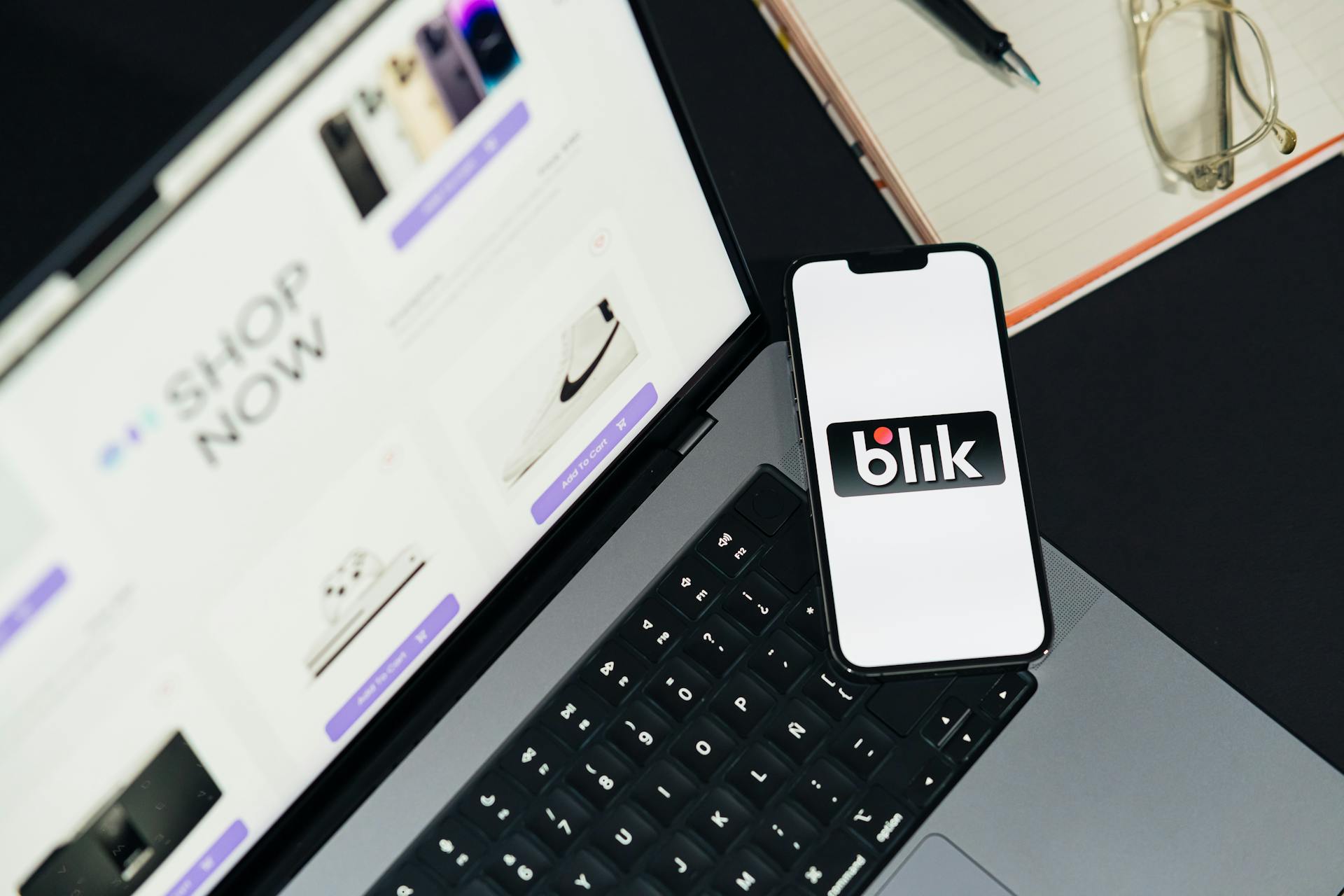
If you're running a healthcare store on Shopify, you're likely aware of the importance of protecting sensitive patient data. Shopify has made efforts to become more HIPAA compliant, but it's essential to understand what that means for your business.
Shopify has partnered with third-party apps to provide HIPAA-compliant solutions for healthcare businesses, such as HIPAA Secure and Compliancy Group. These apps can help you meet the necessary standards for handling electronic protected health information (ePHI).
To achieve HIPAA compliance, you'll need to implement measures such as data encryption, access controls, and auditing capabilities. This includes using secure payment gateways and storing credit card information securely.
As a healthcare store owner, it's crucial to understand the specific requirements for HIPAA compliance and take steps to implement them on your Shopify store.
See what others are reading: Shopify Currency Conversion Fee
What Makes a Software Tool Compliant?
A software tool is considered compliant if it has safeguards to keep patient data private and secure. This is the first indication of compliance.

To be HIPAA compliant, a software provider must sign business associate agreements. This is the second key factor in determining compliance.
If a tool has both of these features, it's likely HIPAA compliant. If either one is missing, the tool is not compliant.
In essence, a software tool needs to have robust security measures and a signed business associate agreement to be considered compliant.
Shopify
Shopify is not inherently HIPAA compliant, but it can be made to be with some workarounds. You can't use Shopify as a business associate vendor because it doesn't sign BAAs, so PHI can't be created, stored, or transmitted through it.
To use Shopify in compliance with HIPAA standards, you need to use a HIPAA compliant cloud server to store purchasers' data. This means using a service like Amazon Web Services, Microsoft Azure, or Google Cloud to host your online store.
Here are some examples of HIPAA compliant web hosting services you can consider:
- Amazon Web Services
- Microsoft Azure
- Google Cloud
Shopify Overview

Shopify is an e-commerce platform that allows you to host your online store. It's a popular choice among entrepreneurs and small business owners.
To use Shopify, you'll need to sign up for an account and follow the prompts to set up your store. This includes choosing a template, adding products, and configuring payment options.
Shopify is not inherently HIPAA compliant, so if you're handling sensitive customer data, you'll need to use a HIPAA compliant cloud server to store it. This ensures that your customers' data is secure.
Some examples of HIPAA compliant web hosting services include Amazon Web Services, Microsoft Azure, and Google Cloud.
Discover more: Store Pay Shop Pay
Shopify Features for Healthcare
Shopify is not inherently HIPAA compliant, but it can be made to be with some workarounds. To use Shopify in compliance with HIPAA standards, you must use a HIPAA compliant cloud server to store purchasers' data.
Shopify does not sign BAAs, so they cannot act as a business associate vendor, which means no PHI can be created, stored, or transmitted through Shopify.
Explore further: How to Set up Shop Pay

Some examples of HIPAA compliant web hosting services include Amazon Web Services, Microsoft Azure, and Google Cloud.
To use Shopify in compliance, the form that the purchaser uses to input their data must be connected to a secure private web service so that PHI is never entered into the Shopify platform.
You can use Shopify without violating HIPAA by implementing a workaround, but it's best to consult your IT department or MSP for help.
Discover more: Pay Pal Goods and Services
Compliance and Security
Shopify's compliance with HIPAA regulations is a crucial aspect to consider for businesses that handle sensitive customer data.
Shopify offers a Business Associate Agreement (BAA) to its merchants, which is a key requirement for HIPAA compliance.
The BAA ensures that Shopify's merchants are aware of their responsibilities and obligations under HIPAA.
Recommended read: Stock Quote Shopify
Safeguards
Safeguards are in place to protect sensitive data and prevent unauthorized access.
Regular software updates and patches are essential to fix vulnerabilities and prevent attacks. This can be done automatically through tools like Windows Update or manually by checking for updates on the vendor's website.

Implementing strong passwords and multi-factor authentication can significantly reduce the risk of a data breach.
In addition to technical safeguards, having a clear incident response plan in place is crucial in the event of a security breach.
Two-factor authentication requires users to provide a second form of verification, such as a code sent to their phone, in addition to their password.
Secure protocols like HTTPS should be used for all online transactions and data transfers.
A robust backup and disaster recovery plan can help minimize data loss in the event of a security incident.
Worth a look: What Is Dc Plan Safe Harbor
PCI Compliance
Shopify has taken significant steps to ensure its platform is secure and compliant with the Payment Card Industry Data Security Standards (PCI DSS).
Shopify is certified as a PCI Level 1 Service Provider, the highest level of certification available. This certification requires strict security protocols for handling credit card information.
Shopify's platform is regularly audited and tested to ensure compliance with PCI DSS standards.
For your interest: Security Metrics Pci Compliance Cost
Sources
- https://compliancy-group.com/is-shopify-hipaa-compliant/
- https://www.spectraintegration.com/services/fulfillment-and-warehousing/hipaa-compliance-fulfillment/
- https://eluminoustechnologies.com/blog/hipaa-compliant-app-development/
- https://bysimpli.com/shopify-compliance-for-healthcare-related-stores-exploring-the-offered-level/
- https://medium.com/hipaa-press/hipaa-compliance-and-your-practices-shopify-store-b07c5188be70
Featured Images: pexels.com


